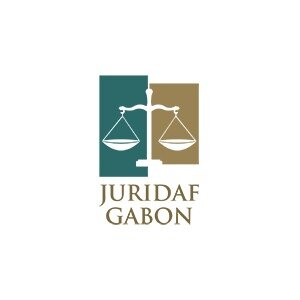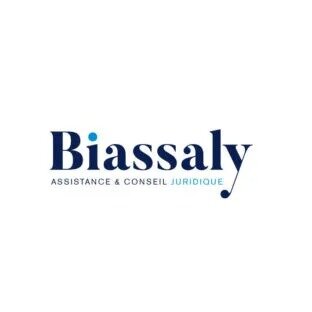Best Climate Change Law Lawyers in Gabon
Share your needs with us, get contacted by law firms.
Free. Takes 2 min.
Or refine your search by selecting a city:
List of the best lawyers in Gabon
About Climate Change Law in Gabon
Climate Change Law in Gabon is a growing legal field that addresses the country’s response to global climate challenges. Gabon, located in Central Africa and home to vast rainforests, has positioned itself as a regional leader in environmental conservation and sustainable development. The nation’s legal framework includes policies, regulations, and statutes that aim to mitigate greenhouse gas emissions, manage natural resources sustainably, and adapt to the impacts of climate change. These laws are essential for protecting biodiversity, safeguarding local communities, and fulfilling Gabon’s international commitments, especially under the Paris Agreement.
Why You May Need a Lawyer
There are several reasons why individuals, businesses, or organizations in Gabon might require assistance from a lawyer who specializes in Climate Change Law. Some common situations include:
- Compliance with environmental regulations for businesses or projects, such as mining, logging, or infrastructure development.
- Processing permits or authorizations related to land use, emissions, or resource extraction.
- Navigating disputes over natural resources, land rights, or environmental damages.
- Understanding obligations under international treaties and agreements.
- Consulting on projects eligible for carbon credits or climate financing schemes.
- Defending against allegations of environmental harm or breaches of climate-related laws.
- Advocating for community rights and traditional practices affected by new regulations.
Legal guidance is especially helpful for those unfamiliar with the complex and evolving framework of climate policies in Gabon.
Local Laws Overview
Climate Change Law in Gabon encompasses various statutes, regulations, and policy instruments. Some of the most relevant aspects include:
- The Environment Code: This legislation outlines the fundamental principles of environmental protection, emission controls, pollution prevention, and natural resource management.
- Forestry Laws: Gabon has strong forestry regulations to combat deforestation, monitor logging offenses, and promote sustainable practices.
- Carbon Markets: Gabon is one of the first African countries to establish a carbon credit certification process, allowing the measurement and trade of carbon reductions.
- Climate Change Strategy and Nationally Determined Contributions (NDCs): The government has formal plans to limit emissions and adapt to climate impacts, in line with international agreements.
- Regulation of Extractive Industries: Specific requirements for sectors such as oil, mining, and gas aim to balance economic growth with environmental protection.
- Protected Areas Management: A network of national parks with dedicated legal protection against exploitation or illegal activities.
- International Commitments: Gabon is a party to global treaties like the Paris Agreement, requiring the development and enforcement of climate policies at the national level.
Frequently Asked Questions
What are Gabon’s main climate change laws?
The Environment Code, forestry regulations, and laws concerning protected areas form the backbone of Gabon’s legal response to climate change. There are also policies supporting carbon markets and greenhouse gas emission limits.
How does Gabon regulate greenhouse gas emissions?
Gabon uses permits, reporting requirements, and targeted emission reduction strategies, as outlined in its international commitments and national climate strategies.
Are there laws to protect forests and wildlife?
Yes, Gabon’s forestry laws and protected area regulations are among the strictest in Africa, helping to preserve biodiversity and carbon sinks.
How can businesses comply with climate change regulations?
Businesses must obtain permits, respect emission and waste disposal standards, and implement sustainability plans, often with guidance from environmental authorities.
What is Gabon’s role in international climate agreements?
Gabon is an active member of the Paris Agreement and the Central African Forests Initiative, regularly submitting climate action plans and contributing to regional conservation efforts.
Can communities challenge environmentally harmful projects?
Local communities have legal rights to participate in environmental decisions and can challenge projects that violate environmental laws or threaten their land and resources.
What legal steps are required for carbon credit projects?
Projects must be registered, meet verification standards, and comply with both national and international frameworks to issue and trade carbon credits.
Who enforces climate change law in Gabon?
Enforcement agencies include the Ministry of Environment, local environmental directorates, and, for certain areas, park and forestry authorities.
Are there penalties for violating climate change laws?
Yes, violators may face fines, suspension of activities, withdrawal of permits, or criminal prosecution, depending on the infraction's severity.
Where can I find more information or legal support?
You can contact governmental agencies, local legal professionals, or seek information from international and regional organizations dedicated to environmental law.
Additional Resources
If you need further support or wish to understand more about Climate Change Law in Gabon, consider reaching out to:
- Ministry of Environment and Climate Change: The main governmental body overseeing environmental and climate regulations.
- Agence Nationale des Parcs Nationaux (ANPN): Responsible for the management of Gabon’s national parks and protected areas.
- Central African Forests Initiative (CAFI): A regional platform supporting sustainable forest management, with significant Gabonese involvement.
- Local Bar Associations: These can help connect you with lawyers specializing in environmental and climate change matters.
- Non-Governmental Organizations: Groups like WWF and Conservation International work actively in Gabon and can provide guidance or referrals.
Next Steps
If you believe you need legal advice or representation concerning Climate Change Law in Gabon, consider the following actions:
- Clearly identify your legal issue or question, such as regulatory compliance, project permitting, or community rights.
- Gather any relevant documents, such as permits, correspondence, or environmental reports.
- Contact a lawyer or legal advisor with experience in Gabonese environmental law. Local bar associations can help with referrals.
- If your issue involves a government agency, reach out for information about applicable procedures or requirements.
- Consult with organizations or networks focused on environmental protection for support or additional guidance.
Taking these steps can help you better understand your rights and responsibilities under Gabon’s Climate Change Law and ensure that you receive the appropriate legal support.
Lawzana helps you find the best lawyers and law firms in Gabon through a curated and pre-screened list of qualified legal professionals. Our platform offers rankings and detailed profiles of attorneys and law firms, allowing you to compare based on practice areas, including Climate Change Law, experience, and client feedback.
Each profile includes a description of the firm's areas of practice, client reviews, team members and partners, year of establishment, spoken languages, office locations, contact information, social media presence, and any published articles or resources. Most firms on our platform speak English and are experienced in both local and international legal matters.
Get a quote from top-rated law firms in Gabon — quickly, securely, and without unnecessary hassle.
Disclaimer:
The information provided on this page is for general informational purposes only and does not constitute legal advice. While we strive to ensure the accuracy and relevance of the content, legal information may change over time, and interpretations of the law can vary. You should always consult with a qualified legal professional for advice specific to your situation.
We disclaim all liability for actions taken or not taken based on the content of this page. If you believe any information is incorrect or outdated, please contact us, and we will review and update it where appropriate.
Browse climate change law law firms by city in Gabon
Refine your search by selecting a city.










